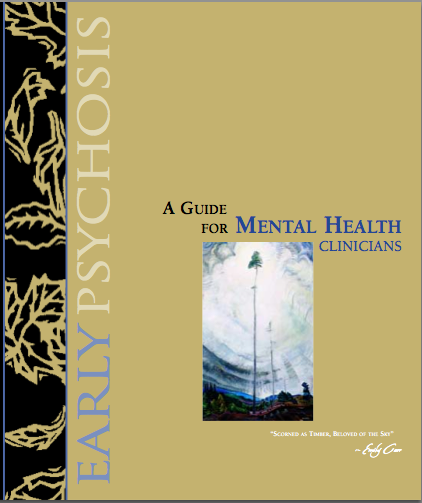Have you ever been asked on an interview for a prospective new social work position: How would you react to a person who just walked in and appears to be psychotic?
To help you be prepared for such a question, I consulted with Andrea Goldberg, LCSW who has over 25 years of experience as a psychotherapist, many years of which had been at an outpatient mental health clinic. She is currently working full-time in private practice out in New Jersey.
Some of you may remember Andrea from the wonderful introduction she gave us on EMDR therapy in an interview.
So without further ado, Andrea, If you were asked on a job interview, “how would you react to a psychotic outburst,” – how would you respond?”
It depends on the type of outpatient facility. If it is a hospital-based mental health clinic, I would alert security to be available if I needed them. If I was concerned about safety, I would keep the door open when I met with the client and would have security passing by or waiting nearby.
If the client was acting bizarre or paranoid, I would discuss the need for hospitalization. If the client was cooperative, I would walk the client to the emergency room, escorted by security. If the client did not cooperate and became agitated and tried to leave, security would take over and restrain the client and transport the client to the emergency room.
When I worked in an outpatient setting that was not in a hospital and did not have security, then I would notify a supervisor of a potential problem so that so that someone was available if I needed help. If the client cooperated with the need for hospitalization I would call an ambulance.
If the client became agitated and refused hospitalization, then I would contact the supervisor so that the police could be called to transport the client to the emergency room. In all of these scenarios, I would report my observations and concerns to the emergency room staff so that they would know what to expect.
What types of questions would you ask the patient under these circumstances to ascertain his/her state of mind (and the type of help you might need)?
It is important to ask about hallucinations. If there are auditory hallucinations, then you need to determine if they are command hallucinations, voices that are telling the client to harm self or others.
I ask for details about what the voices are saying and specifically ask if the client is able to resist the urge to follow the commands to assess risk of suicide or homicide. I also want to find out if they are suspicious or convinced that somebody is trying to harm them and if they have a plan for how to handle this to determine if there is an imminent threat.
I would also ask for clarification if the client said anything that didn’t make sense, to evaluate if their thought process is disorganized or incoherent. However, if the client became agitated, I would not pursue it and would use de-escalation strategies to calm the client.
If at any time I was concerned for my safety, even if there was not explicit threat, I would trust my instincts and get help.
Thanks so much, Andrea, for your valuable guidance on these questions! This gives us a good idea of how to handle such a question in a prospective job interview.
For those of you who would like to go into more depth on this topic [in order to be prepared for other potential questions regarding clients suffering from psychotic symptoms], below is a copy of a guide on psychosis by the University of British Columbia. It covers everything from how this mental illness presents in patients to how one may treat it.
In addition, you may want to check out this Cognitive Behavioral Therapy for Psychosis produced by the Centre for Clinical Interventions. It provides guidance on how to assess for psychosis, provide psychoeducation and CBT treatment [where appropriate].
Have you ever been asked such a question on a job interview? If yes, how did you respond? Are there some additional suggestions you would add to the above?


